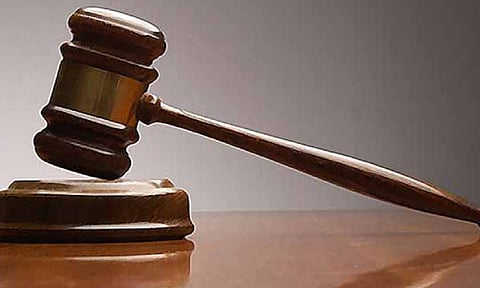

When the Prime Minister Narendra Modi goes around saying that the system in our country has become ‘Tareekh Pe Tareekh’ (a popular Hindi film dialogue which literally means date after date), what he means is that we postpone matters eternally. This description applies more to the courts, and particularly to the criminal justice administration. How to avoid indefinite postponement of cases and fix deadlines is an issue haunting all who are concerned with the system.
Recently, a Supreme Court bench comprising Justices Bela Trivedi and Satish Chandra Sharma directed all courts to scrupulously follow its directions/guidelines for the expeditious delivery of judgments and disposal of bail applications. The directive also emphasised that the courts must grant bail to an accused if they are entitled to it on the ground of long incarceration.
(Unfortunately, another bench comprising Justices Abhay S Oka and Augustine George Masih observed that fixing time-bound schedules for conclusion of proceedings adversely affected the functioning of trial courts.)
Over the last 75 years, the High Courts used to call for returns from the lower courts containing the details of the cases heard, disposed of, or adjourned on a monthly basis. After scrutinising the data, they would give directions to the lower courts to dispose of old pending matters or important cases that require early disposal. Many a times, the district sessions judges and magistrates were pulled up for granting unnecessary adjournments.
The recent directive (there have been many such directives before) is the need of the hour. But are the higher courts, including the Supreme Court, practising this? The proliferation of Special Leave Petitions being filed and entertained over bail rejections by the magistrates, district courts and High Courts show that even the highest court of the country has to deal with bail applications.
A classic example is the case of Bhima Koregaon (BK-16) – which became BK-15 after Fr Stan Swamy’s death. Though more than seven years have passed since the arrest of the accused, many are yet to get bail from the special court or the High Court. The charge sheet in their cases registered under the notorious Unlawful Activities Prevention Act (UAPA) is yet to be filed. None knows when the trial will start.
The case of Umar Khalid, a JNU student who was arrested in connection with the March 2020 Delhi riots, is more disconcerting. This month marks the fifth anniversary of the police filing a conspiracy case, but it is not even close to being tried. Of the 18 accused, 12 are still fighting for bail. They remain in jail in violation of Supreme Court orders on bail, which prioritised the right to life and liberty, which entails the right to a speedy trial, even in cases where draconian terrorism charges are invoked.
It was rather ironic that while dealing with his bail plea, a bench of the Delhi High Court went into the historical meaning of the slogan Inquilab Zindabad (long live the revolution) which was allegedly raised by some members of the gathering that Khalid addressed. The bench delved deep into history, even comparing it to the French Revolution, only to eventually reject the bail application.
The bench’s finding on the slogan went like this: “However, this court is not impressed by the argument of the appellant in as much as the call to revolution does not have to affect only the immediate gathering. The call to revolution may affect many beyond those who were visibly present, which is why this court finds it apt to mention Robespierre, who was at the vanguard of the French revolution.”
It is not the only ailment afflicting the judiciary. In some cases, even when they are willing to give bail or remove certain obstacles, some courts do so with so-called conditions that go beyond the scope of bail applications and interim orders. An example for this is the case of the YouTuber Felix Gerald, who was asked to shut down his channel as one of the bail conditions. Fortunately, the Supreme Court stayed the condition.
Time and again the Supreme Court has emphasised that bail conditions should be within the norms that is required to release the person and not conditions that he/she is incapable of fulfilling or beyond the scope of a bail petition. But who cares for such pontifications? Such orders are not only on the rise, but also have become the order of the day.
A more recent example is that of the Tamil periodical, Vikatan. Its website was blocked by the union government with an order under Section 69A of the Information Technology Act for publishing a political cartoon picturising the Indian Prime Minister in shackles while dealing with US President Donald Trump. It was claimed that showing the prime minister in chains was offensive.
After Vikatan moved the Madras High Court, a judge directed the removal of the block but also put a rider: remove the cartoon from its website. Such conditions are unheard of and certainly not in consonance with the fundamental right of expression guaranteed under Article 19(1)(a).
Orders like that show the judiciary in a poor light. It is unthinkable how the court can block the cartoon, which is the subject matter of the litigation itself. Further, such exercises are meaningless in the context of the information revolution that enables sharing and transferring such images within a minute.
Many times, people move the higher courts for bail or interim relief only because the trial processes have become long drawn. If the courts dispose of such matters as fast as they can, then the question of obtaining temporary orders will diminish.
Adjournment after adjournment should not be the mantra of the criminal administrative system lest the precious right to liberty under Article 21 will become meaningless.
(The writer is a retired judge of the Madras High Court)